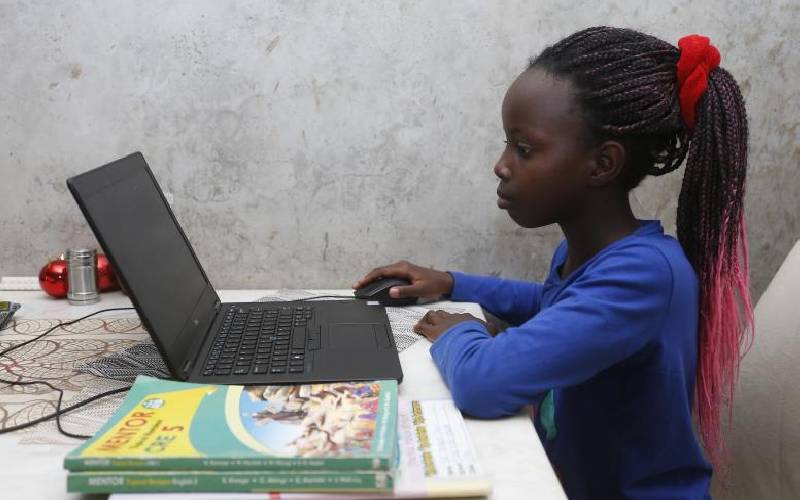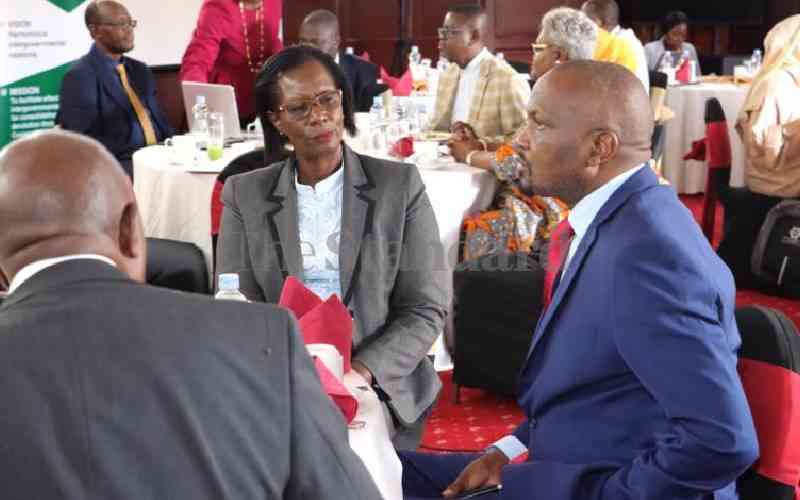
The Ministry of Education was caught up between a rock and a hard place in decision to keep learning institutions open and increase the likelihood of spreading the Covid-19 or closing down to save teachers and learners (and by extension households) from the pandemic. Based on the Covid-19 realities in Kenya, the decision was made to suspend the entire education calendar, no KCPE and KCSE this year, and learners will remain in classes they were in before the lock-down when school open early 2021. Hopefully, Covid-19 will have subdued across Kenya.
In our education context, the Government had no other options to explore rather than a full suspension of the school calendar. Two conditions could have provided other options for this.
One, if the spread, use and availability of technology, including radios, TVs, smartphones and high internet connectivity was a culture and strong across the country, and in all households.
Two, if Kenya hard a robust and inclusive virtual (on-line) learning through distance learning platforms like e-learning, distance education, correspondence education, external studies, flexibility education and massive open online courses, including electronic textbooks. Unfortunately, Kenya does not meet these basic conditions.
Therefore, over 80 per cent of learners, especially those from poor households in rural areas and informal settlements in urban areas, could have been disadvantaged if the Government did not suspend the 2020 school calendar. This was an equality and equity issue.
At the epicentre of the virus, in China, more than 180 million school children were at home, but schooling continued. It was just that it is a different kind of teaching, learning and supervision. Students were being educated remotely using technology, through a variety of on-line courses and electronics. This is also happening in many Organisation for Economic Co-operation and Development countries and in Mauritius, Cape Verde and Tunisia.
These are countries that have relevant policies, platforms and accessibility, and use of IT in day-to-day and business life, leave alone in education.
With the total lockdown of learning institutions due to Covid-19, the lesson learned is that Kenya has to target building education resilience to risks and epidemics, boosting distance learning, availability, access and use of IT, E-education resource, and capacity building of teachers across the country.
Research is key ingredient in this ‘new-normal’ in Kenya. As, I have indicated before, universities (public and private ones), must now prepare strategies and fund research and innovations in building education resilience and adaptation.
Even with the opening of schools under a new school calendar, the country has to come up with comprehensive strategies that will make education and learning institutions prepare, cope and recover lost time, interest and focus. This time it is Covid-19, but next time it could be outbreaks such as SARS, Ebola, or climate related risks such as Tsunami or floods along Lake Victoria region.
During lock-down, we assume policy makers have understood that it is not just remote learning, it is learning during a pandemic. They must question what the future of education will mean after Covid-19. Second, which path will policy makers, educators and school take? And third, what will be the role of research, monitoring and reporting in supporting quality teaching and learning for all?
If Kenya continues with “business as usual” mentality and attitude after Covid-19, the country could lose a whole generation of human capital.
— The writer is Public Policy Analyst /Senior Researcher at the Centre for Research and Development. ([email protected])
 The Standard Group Plc is a multi-media organization with investments in media
platforms spanning newspaper print operations, television, radio broadcasting,
digital and online services. The Standard Group is recognized as a leading
multi-media house in Kenya with a key influence in matters of national and
international interest.
The Standard Group Plc is a multi-media organization with investments in media
platforms spanning newspaper print operations, television, radio broadcasting,
digital and online services. The Standard Group is recognized as a leading
multi-media house in Kenya with a key influence in matters of national and
international interest.
 The Standard Group Plc is a multi-media organization with investments in media
platforms spanning newspaper print operations, television, radio broadcasting,
digital and online services. The Standard Group is recognized as a leading
multi-media house in Kenya with a key influence in matters of national and
international interest.
The Standard Group Plc is a multi-media organization with investments in media
platforms spanning newspaper print operations, television, radio broadcasting,
digital and online services. The Standard Group is recognized as a leading
multi-media house in Kenya with a key influence in matters of national and
international interest.










